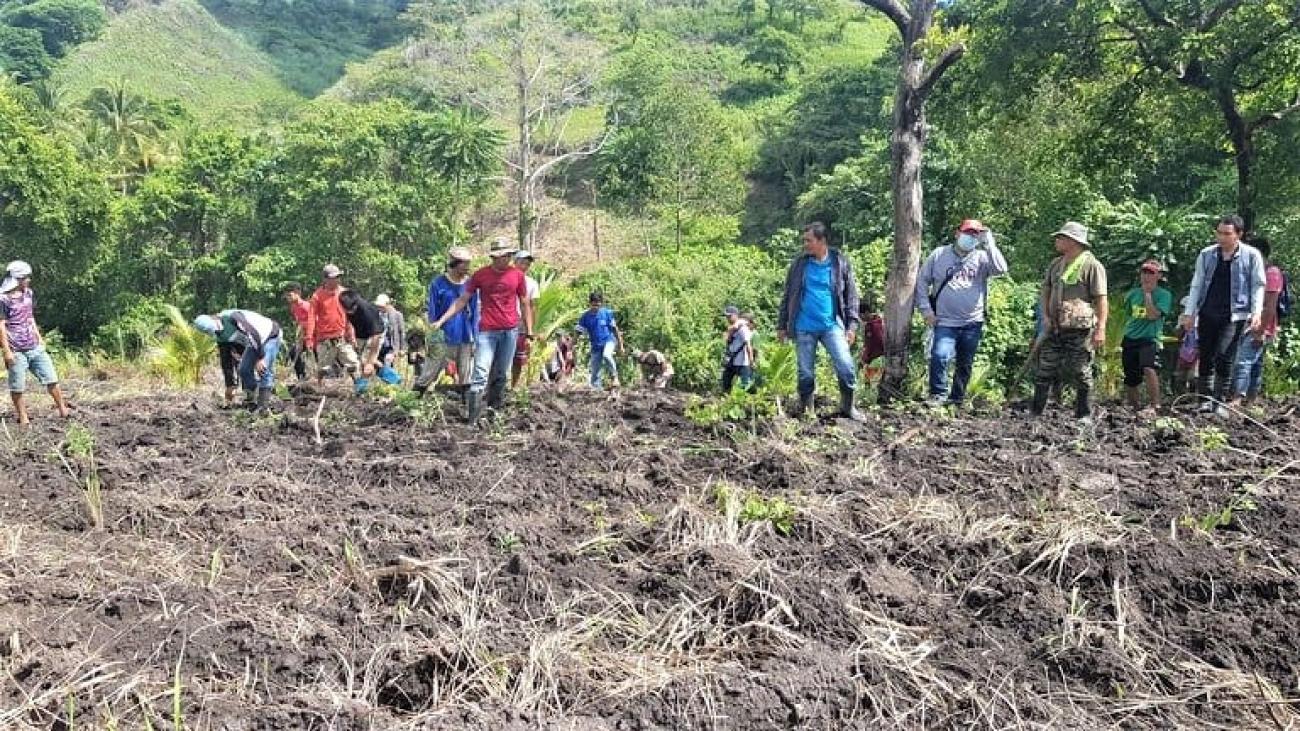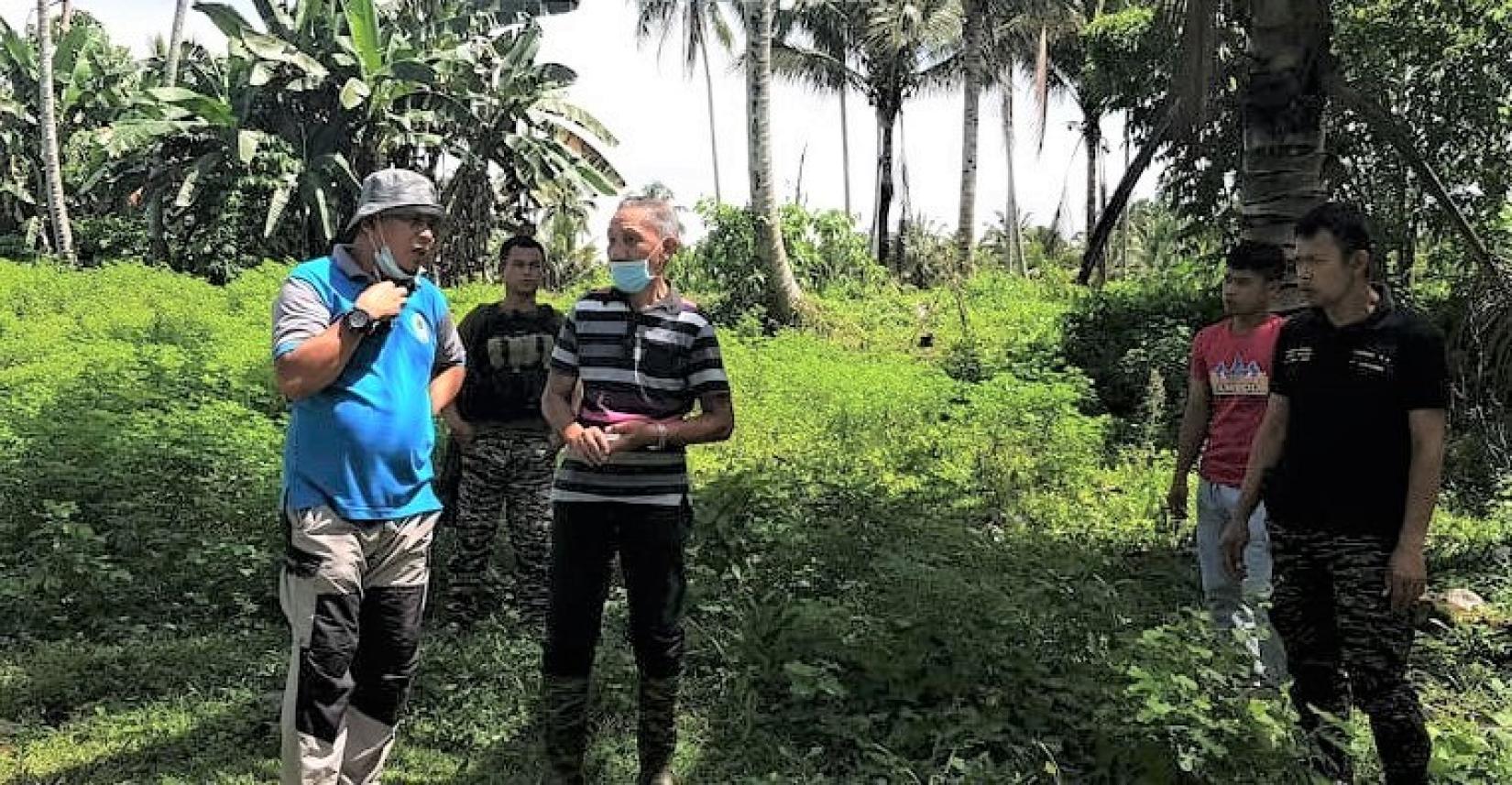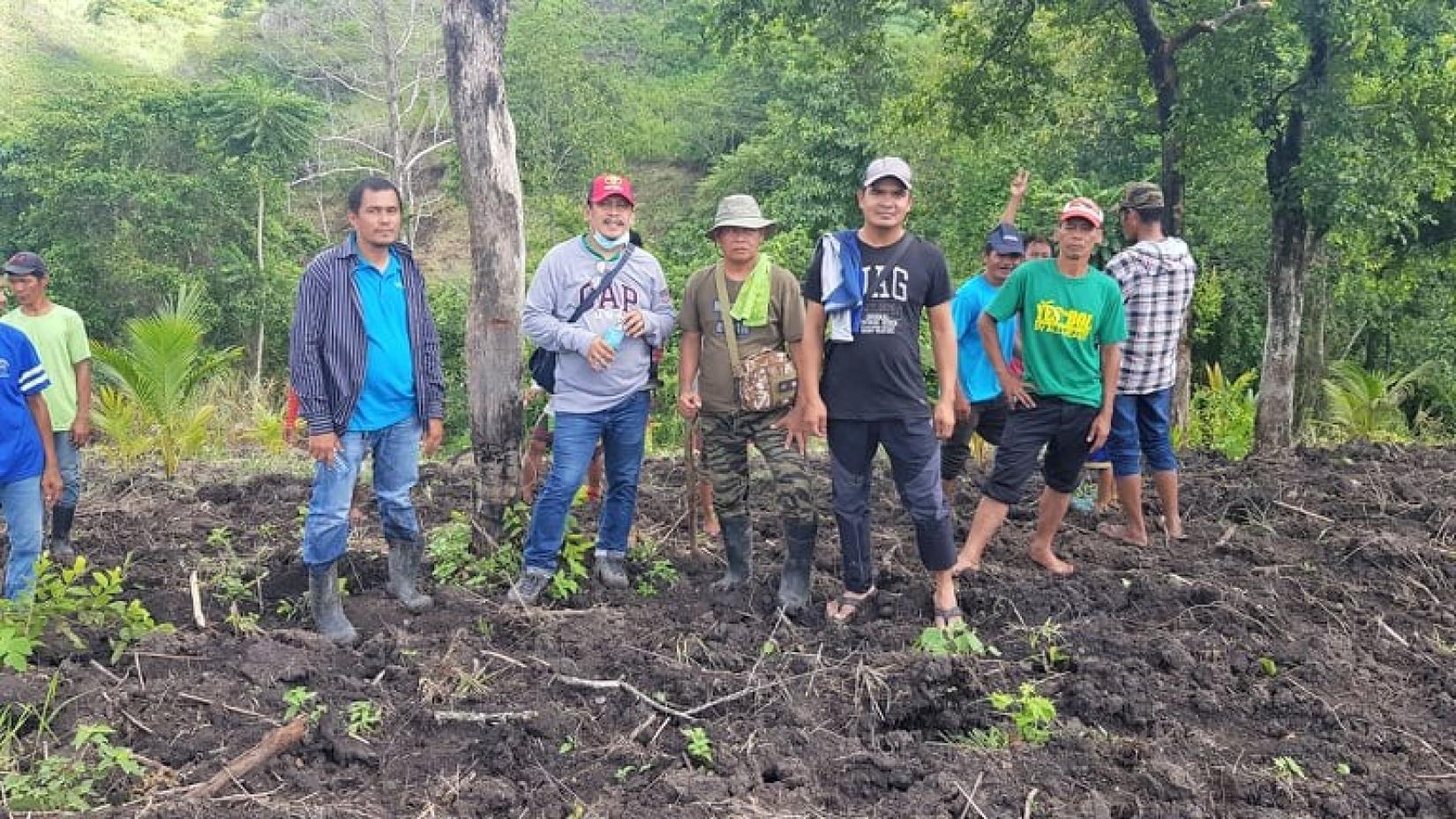BARMM: From fighters to forest rangers and farmers

Former combatants help lay seeds of peace
The World Food Programme (WFP) has signed a deal with the regional government of the Bangsamoro Autonomous Region in Muslim Mindanao (BARMM), targeting agricultural productivity and sustainable income-generating initiatives in the southern Philippines while helping rehabilitate former combatants.
The agreement was forged between WFP, the Ministry of Environment, Natural Resources and Energy (MENRE), the Ministry of Agriculture, Fisheries and Agrarian Reform (MAFAR), the Ministry of Interior and Local Government (MILG), and the Bangsamoro Planning and Development Authority (BPDA).
A multisectoral approach
The collaboration between WFP and BARMM ministries aims to establish a convergence model in the region that will demonstrate sustainable income-generating activities through rural development. This concerted effort is a multisectoral approach that will:
• protect, conserve and rehabilitate forests, coastal and marine resources to achieve ecological balance and diversity;
• assist decommissioned and soon-to-be decommissioned combatants through agricultural productivity that will assimilate them back to society as economic contributors towards development; and
• mainstream disaster risk reduction and climate change adaptation measures to improve community resilience.
As entry points, each of the ministries’ flagship programmes will be streamlined to ensure smooth implementation. MENRE’s Integrated Bangsamoro Greening Programme (IBGP) implements greening activities such as rehabilitation and reforestation, to improve the ecological environment in the region.
IBGP mobilizes former combatants from the ongoing civil conflict in the Mindanao region, to serve as forest rangers, and will encourage them to participate in income-generating activities through farming in government-allocated lands.

Meanwhile, MAFAR’s Basic Integration of Harmonized Intervention (BInHI) supports farmers by providing seeds, fertilizers and farming equipment, as well as training and access to markets. BInHI will be used as the vehicle to enjoin former combatants and their families towards sustainable vegetable farming.
MILG will support IBGP as a disaster risk reduction and climate change adaptation measure, to ‘weatherproof’ the convergence and ensure that risks are mitigated and gains will be protected when natural hazards such as typhoons and droughts hit. BPDA will consolidate and steer the direction of this multilateral partnership, and will serve as secretariat for the convergence.
WFP’s collaboration with the BARMM government has been established since 2009, through joint livelihood activities that have provided opportunities to thousands of farmers and fishermen whose livelihoods were threatened by natural hazards and sporadic armed clashes that brought about internal displacement.
A host of livelihood activities
WFP will support the convergence by providing technical assistance in the institutionalization of community-based participatory planning, training government staff and facilitating workshops. WFP will also assist in setting up a buy-back scheme through its home-grown school feeding programme, which sources locally produced food.
Additionally, WFP will lend its digital platform, SCOPE, for the registration of beneficiaries and the management of data and entitlements. Finally, WFP will complement BARMM’s provision of agricultural inputs (seeds and fertilizers) and farming tools, through conditional cash transfers to households participating in the establishment of agroforestry nurseries and vegetable-production areas.
Livelihoods under the initiative are as follows:
• delineate land areas identified as convergence sites for vegetable production, agroforestry establishment and tree planting;
• identify 12.5 hectares of land for vegetable production;
• identify, register and train 1,000 participants/beneficiaries in the three activities;
• create market links for the sales of produce; and
• provide seedlings of forest and fruit trees for the tree-planting activities.

The convergence aims to promote an improved sense of community ownership, with a development plan drawn up through a community-based, participatory approach. It targets increased forest cover in the region from 23 percent to around 52 percent, with the engagement of the decommissioned and soon-to-be decommissioned combatants.
WFP and BARMM aim for a region that is self-sufficient, self-reliant and food secure. Ultimately, this collaboration should bring us one step closer towards the goal of a healthier and more prosperous and peaceful Bangsamoro.
This project is made possible through a contribution from the Japan Association of the World Food Programme, a certified non-profit organization that supports the work of WFP.


